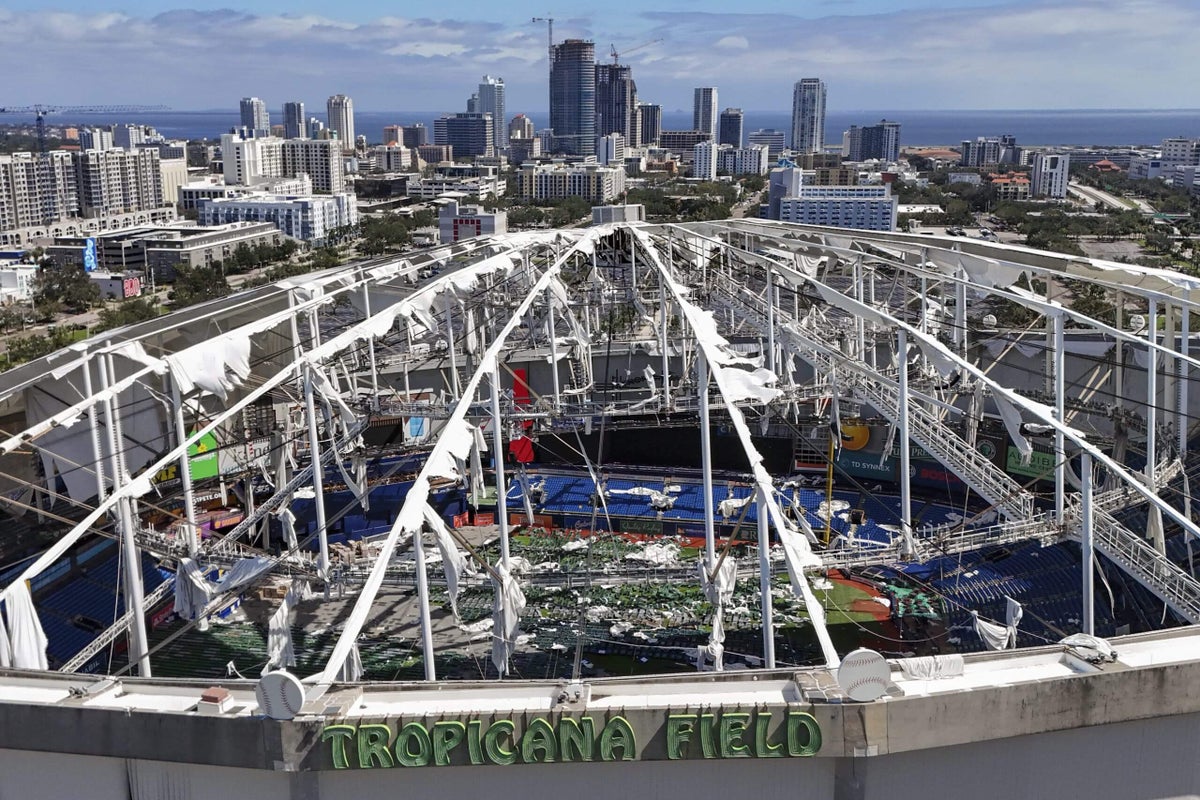The Tampa Bay Rays’ plans to build a new stadium in St. Petersburg, Fla., took another hit Tuesday. The Pinellas County Board of Commissions decided to postpone a vote to approve bonds that would finance the ballpark’s construction.
It is the second time the county commissioners have postponed a vote on financing, a decision that the Rays said will at the very least postpone construction of the ballpark by a year, and possibly kill the deal entirely. The new vote is now scheduled for Dec. 17.
Many of the commissioners expressed frustration regarding comments made by Rays owner Stu Sternberg to the Tampa Bay Times in an article published on Saturday.
“Last month, the County Commission upended our ballpark agreement by not approving their bonds, as they promised to do,” Sternberg told the paper regarding the initial delay. “That action sent a clear message that we had lost the county as a partner.
“The future of baseball in Tampa Bay became less certain after that vote.”
The Rays and Pinellas County initially agreed to a deal in July that would eventually lead to the groundbreaking on a new stadium in St. Petersburg’s Gas Plant District. The plan was for the Rays to move into their new home in 2028. The Rays now say this won’t be possible.
This issue comes against the backdrop of the Rays being forced out of Tropicana Field due to significant damage from Hurricane Milton that made the venue unplayable. A damage assessment report released last week estimated that it would cost more than $55.7 million to repair, and wouldn’t be completed until just before the 2026 season. The Rays’ lease at the Trop expires after the 2027 season.
The significant uncertainty has led to questions about the Rays leaving St. Petersburg and the Tampa Bay region following the 2025 season, where they’ll play home games at Steinbrenner Field in Tampa — the spring training home of the New York Yankees. Given the high costs to repair Tropicana Field and uncertainty over a long-term stadium deal, it remains unclear what their future looks like in the region.
“To be clear, we did not vote to kill the deal, nor should a three-week delay in a 30-plus year commitment be a deal-killer to begin with,” said Brian Scott, the board’s vice chair, during the hearing. “That’s just a totally ridiculous statement.
“The delay was not because of a lack of support for the Rays or our partnership. But it was a necessary due diligence to ensure the best interest of our residents and our taxpayers were met.”
Scott said he recently asked Rays president Brian Auld to make a public statement affirming the team’s commitment to remain in Pinellas County. Instead, Scott said, Auld told him he was doing everything he could to hold the deal together amid projects and cost estimates going in “the wrong direction.”
Scott, who indicated he still supports approving the bonds, said he believes it’s possible the Rays are looking for a way out of the deal, and to hang that failure on the newest members, who were sworn in on Monday.
Both new members, Chris Scherer and Vince Nowicki, have shown skepticism for the deal, which was negotiated before their election. They voted for the delay, as did fellow commissioner Dave Eggers, who started off his comments by saying, “I am not going to feel rushed by statements that were made by the Rays.”
Auld and fellow team president Matt Silverman were in attendance but indicated in a letter to the board ahead of the meeting that they would not be taking questions. In the letter, they said the initial vote on bonds was believed to be “a formality” and a necessity in order to remain on schedule for 2028.
“As we have informed the county administrator and St. Petersburg mayor Ken Welch, the county’s failure to finalize the bonds last month ended the ability for a 2028 delivery of the ballpark,” the letter said.
“The Rays organization is saddened and stunned by this unfortunate turn of events. … Now, the enormous investment of human and financial capital has been jeopardized by the county’s failure to live up to its July agreement.”
The Rays declined to comment following Tuesday’s meeting.
Required reading
(Photo: Mike Carlson / Associated Press)

